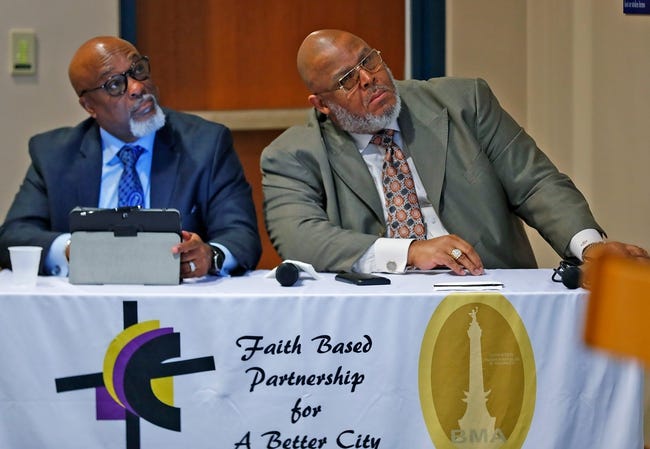A Ministerial association with the goal of mobilizing spiritual leadership to combat issues of racial, educational, and economic inequality and injustice, Concerned Clergy grew out of the post-World War II civil rights movement that saw African American clergy take an increasingly public leadership and advocacy role.

The group in Indianapolis was launched by the Reverends C. V. Jetter of Shiloh Missionary Baptist Church, of , and of Mount Vernon Missionary Baptist Church in 1960. All three ministers were active in the national civil rights movement and sought to end Jim Crow laws and bring about changes in Indianapolis as well. As such, they served as spokesmen for and coordinators of a coalition that included ministers, political leaders, labor leaders, and attorneys to support social and economic betterment for the city’s Black population.
While other ministerial groups declined as the 20th century ended, Concerned Clergy maintained its prominent position. Although diluted African American political power, the group remained a visible minority organization that lawmakers had to hear even if they did not always adhere to its prescriptions. Concerned Clergy took an increasing interest in education in the wake of Unigov, becoming a vocal advocate for the public school system especially as the movement took shape. It also took a firm stand against discriminatory real estate practices as more African Americans moved out of the historic downtown/Center Township neighborhoods into the outlying townships.
In the first few decades of the 21st century, the organization increasingly focused on the issues of violence and police reform. Their relationship with the mayor’s office, regardless of which political party might control it, was often strained. The tension was heightened by the rise of other groups with ministerial ties in the city’s African American community, such as the . Concerned Clergy’s commitment to keeping a discussion on the state of race relations in the city remained and their lobbying efforts and public advocacy increased in the wake of police shootings, the emergence of the Black Lives Matter movement and the wave of protests and discussion about racial injustice and police violence following George Floyd’s murder in 2020 in Minneapolis.

Help improve this entry
Contribute information, offer corrections, suggest images.
You can also recommend new entries related to this topic.